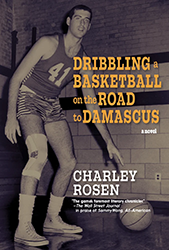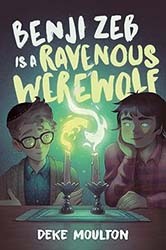Yocheved “Yoyo” Gold is a high school student in an observant Jewish community. Her father is a highly respected rabbi, consulted regularly about applications of halacha (Jewish law) to everyday life. Yoyo is academically accomplished and regularly does community service while also fulfilling her demanding role as a daughter and sibling. Yet, she is intellectually and emotionally unable to defer to authority as a default condition for acceptance. When her closest friend, Esti, openly defies Orthodox norms and transfers to a distant boarding school, Yoyo finds herself questioning the foundations of her beliefs and practices. Isaac Blum’s novel for young adults contextualizes Yoyo’s exploration of personal autonomy within the restrictive framework of traditional Judaism. Yoyo also reaches her own conclusions about the consequences of choices that are disconnected from values.
Blum takes risks in addressing Orthodox laws that may appear indefensible to some readers. He succeeds in describing complexity, rather than passive acceptance, in his presentation of these issues. Yoyo’s halacha class is focusing on the reasons behind rulings on kol isha, which prohibits men from listening to a woman’s singing voice, as well as issues relating to negiah and yichud. The latter two concepts restrict any physical contact between unrelated men and women, and the sharing of physical space that might encourage violation of those limits. Studious Yoyo can immediately come up with the maximum amount of time that a man and woman may share an elevator: three minutes. Yoyo does not verbalize her qualifier, but thinks to herself, “That was the generally accepted number, though, of course, it was somewhat arbitrary.” As the narrative develops, she finds herself constantly evaluating the possibilities of different opinions, a process that actually defines the study of Torah. According to her father, the limits are unmistakable, but Yoyo sees more ambiguity than certainty. Eventually, she even uses social media to challenge the injustices she can no longer tolerate.
The relative rapidity of Yoyo’s transformation from dutiful daughter to rebellious young adult may seem surprising, but Blum traces a number of events that catalyze the change. Esti had been her confidante, but also represented the viability of a different path. When Yoyo meets Mickey, a new participant in her community service project, who is Jewish but decidedly not Orthodox, their developing friendship cannot offer the same mutual support. Mickey enjoys apparently unlimited freedom to dress as she chooses, have access to an unfiltered phone, and ignore the sexist standards that blame women for men’s behavior. Her impulse-driven decisions offer an alternative to the principled resistance that Yoyo has undertaken.
According to Jewish tradition, each person is destined to find his or her bashert, or life partner. While Yoyo has been taught that parents and community leaders will determine who fulfills that role for each young person, her heart tells her otherwise. Her intense attraction to Shua, a young man who is equally ambivalent about compliance with expectations, forms the romantic core of the novel. Finding someone who both rejects and inhabits the precepts that will define her identity, Yoyo Gold begins to discover who she really is.
Emily Schneider writes about literature, feminism, and culture for Tablet, The Forward, The Horn Book, and other publications, and writes about children’s books on her blog. She has a Ph.D. in Romance Languages and Literatures.





